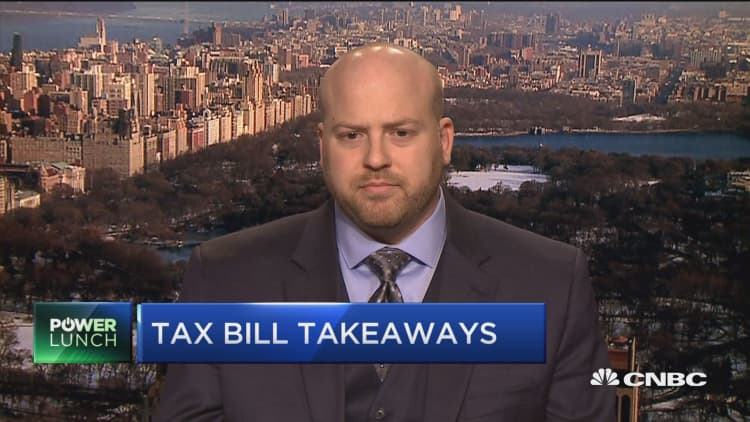Good news: You now have until Oct. 15 to undo any Roth IRA conversions that you made in 2017.
The bad news: That will be the last tax year you will be eligible for a do-over, thanks to the Tax Cuts and Jobs Act.
Here's how it works: You convert your traditional pretax individual retirement account to a posttax Roth IRA. The transaction puts you on the hook for taxes on the money that is converted.
If you decide that tax bill is too much, say because your income is higher than you thought it would be, you may still be able to reverse the transaction. But that only goes for conversions that were done in 2017.
New guidance from the IRS says that you have until Oct. 15 to undo an IRA conversion from last year.
"This is the last time," said Jeffrey Levine, CEO and director of financial planning at BluePrint Wealth Alliance. "You don't want to forget about it."

You do want to think carefully about any IRA conversions you do this year, however. Those transactions are subject to the new tax law, which means no do-overs.
"There's a much greater emphasis now on doing the work before the conversion," Levine said.
Because there's no going back, you should ask yourself three things before doing a conversion, according to Levine.
First, what is the potential tax liability? You want to be able to at least come up with a rough estimate of the taxes you will owe as a result of the transaction, Levine said.
Next, how will this benefit your overall financial plan? You should have a reasonable expectation that making this move will have positive results, according to Levine.
Finally, what is your plan for paying the taxes you will owe? You don't want to be caught off guard by a tax bill you will struggle to pay.
To get the clearest sense of how this move will impact your taxes, you may want to wait until November or December to do an IRA conversion for the 2018 tax year, Levine suggested.
When converting to a Roth IRA, you want to be on the hunt for low-income years, Levine said. That goes particularly for young employees who won't reap substantial tax deductions; business owners who have seen lower income for the year or who have made a substantial investment; or an individual who has had unusually high medical expenses (which are still deductible under the new tax law.).
"Those low-income years are a very bad thing to waste," Levine said.
More from Personal Finance:
How these states are rebelling against the new GOP tax code
Tell-tale signs that your partner is guilty of financial infidelity
This risk can crush your retirement savings by $97,000 a year






